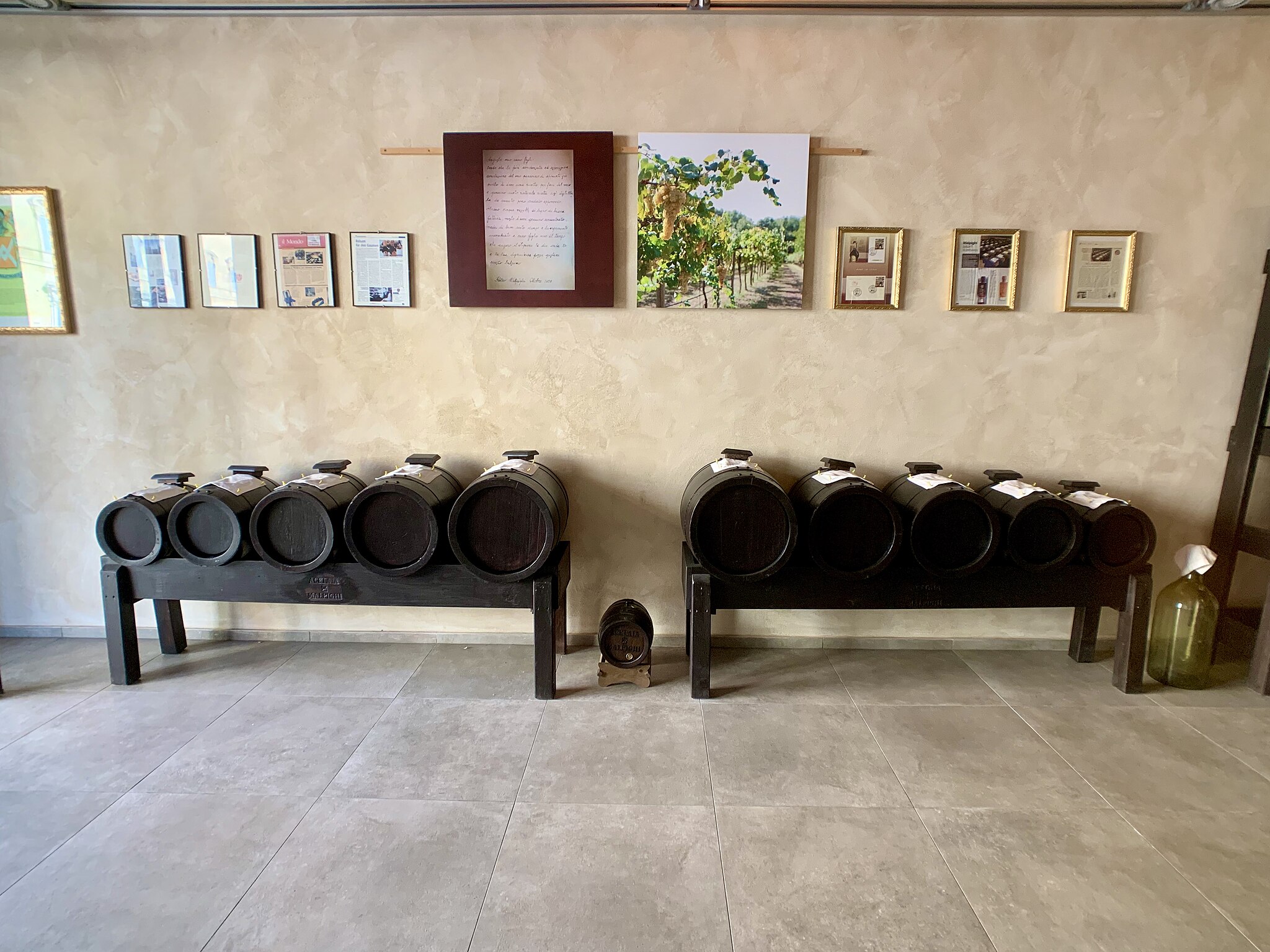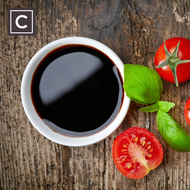Ingredient Glossary: Balsamic Vinegar
Posted by Emily on 1st Dec 2019 Reading Time:
Authentic Balsamic vinegar hails from Modena, situated in Emilia Romagna, Italy. It is meticulously crafted using grape must (juice) that undergoes a reduction process, followed by fermentation. Subsequently, it matures in barrels of progressively diminishing sizes, crafted from various woods to infuse distinct flavours. The outcome is a luscious, dark, and syrupy elixir meant to be employed sparingly.
 Image Source: Kgbo, CC BY-SA 4.0, via Wikimedia Commons
Image Source: Kgbo, CC BY-SA 4.0, via Wikimedia Commons
Genuine Balsamic vinegar will bear the labels 'tradizionale' and/or DOC and generally commands a high price. Alternatively, you can opt for the more affordable industrially-produced 'aceto balsamico di Modena', which blends vinegar with grape must. However, due to its shorter ageing period, it lacks the robustness of flavour.
Availability
Readily available throughout the year.
Selecting the Finest
For an authentic experience, always seek products labelled 'tradizionale/DOC' or 'aceto balsamico di Modena'. Very inexpensive Balsamic vinegars often impersonate these designations and are artificially coloured and flavoured with caramel. While suitable for dressings and glazes, they lack the genuine depth of flavour.
Storage
Keep it in a cool, dark cupboard.
Uses
For an authentic experience, add just a few drops (connoisseurs often employ a pipette) of tradizionale Balsamic vinegar to ripe strawberries, slices of well-aged Parmesan cheese, or high-quality vanilla ice cream. Brush aceto balsamico di Modena over roasted chicken or duck breasts, drizzle it over tomato salads, sprinkle some over grilled tuna steaks, or stir a small amount into a roasted vegetable pasta sauce.
Alternatives
Consider using sherry vinegar or red wine vinegar as substitutes.

